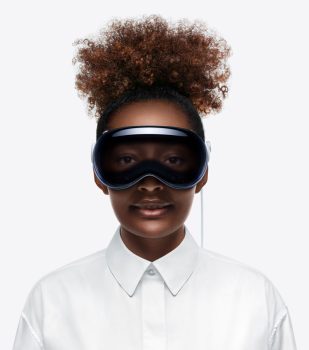
The Apple Vision Pro doesn’t usher in the AR future we were promised
The concept of virtual and augmented reality technology has fascinated the public for years. We’ve all seen the TV shows and movies on the potential of the technology and how it will one day become mainstream. Despite the fact that AR and VR devices have been around for years, they have largely remained as niche devices. Apple launching the Vision Pro is an attempt to break into the mainstream, but I think that’s going to be a tall order.
A hard sell
Despite it’s unique design and unique feature set, it’s hard to ignore the price of the Vision Pro. Priced at over $3,000, it is going to be a hard sell for the average consumer. Competing devices or devices in a similar category are going for way less.
Secondly, battery life on the Vision Pro isn’t that great. For a device that’s supposed to be portable, a battery life of about 2.5 hours is quite disappointing. It might be good for one movie but that’s about it. Lastly, it is too damn conspicuous. Remember when the less-conspicuous Google Glass first launched and the public’s visceral reaction to it? Apple’s Vision Pro doesn’t even bother trying to disguise itself.
This brings us to our next point – the form factor. If Apple is hoping for the Vision Pro to become a daily part of our lives, it needs to be made into a form factor that is easily “forgettable”. Think about products like smartwatches. They can be worn on the wrist and are easily forgotten except when you need it. They don’t get in the way and we don’t need to carve out a special time or place to use them.
Meta’s Ray-Ban smart sunglasses are a great example. Even when their smart features aren’t being used, they double up as a cool fashion accessory that you or I would easily wear on a daily basis.
There is potential
That being said, the Apple Vision Pro is far from a failure. Judging by the various reviews of the device, Apple has indeed created a device that works pretty much as marketed. It is quite an impressive engineering feat, especially with its gesture-based controls. The integration with Apple’s ecosystem is another plus, making it a great extension for iPhone or Mac users.
To be fair, we think that Apple already expects that the first-gen Vision Pro won’t be a smashing hit. The price alone is enough to put off the majority of customers. Like any new form of technology, there is room for improvement and refinement. At the end of the day, Apple needs to decide what they want from the Vision Pro and who exactly they are targeting.
If there is one good thing that the Vision Pro has accomplished is that due to Apple’s marketing efforts and reputation, it can further propel the discussion and interest in AR and VR technology. It can also help serve as a catalyst for broader acceptance and integration of the technology into our daily lives.